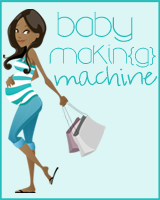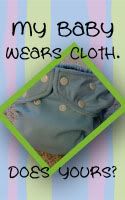One of the most amazing aspects of being a parent is bonding with your child. The relationship that is cultivated, takes root and grows between a parent and their baby is one that will continue to deepen and evolve over their lifetimes. It is an experience that may people look forward to sharing with their baby and I feel it is important for parents expecting their first child to be educated about bonding, especially new mothers. A common topic in the baby world is the bonding experience and I like many others feel there is a lot of pressure placed on new mothers to feel and instant, overwhelming attraction to their newborn. I spent the majority of my pregnancy researching all about my developing baby, pregnancy, breastfeeding and types of parenting but gave little thought to what happens in terms of developing a relationship with Trayton. It comes naturally right? It’s a given that I will fall head over heels in love with him all over again the instant I see him! In my case, that is exactly what happened. However, for some new mothers this is not the case and they need to know that it is perfectly okay.
Ed Christophersen, a pediatric psychologist in Kansas City, Missouri acknowledges the discussion today in regards to bonding and false expectations that result. He states that, “the overwhelming amount of importance placed on immediate feelings of attachment makes mothers who don’t experience this emotion, feel guilty.” Common ideas that, “if I don’t bond with my baby in the immediate minutes following birth, then it will never happen,” or “I am a bad parent for not feeling an attachment” are false and place unnecessary stress on new mothers, especially those who have to be separated from their newborn for medical reasons. According to an article on Baby Center, How Love Blossoms Between You and Your Child, http://www.babycenter.com/0_big-story-how-love-blossoms-between-you-and-your-child_1417762.bc?page=3#articlesection3, about 30% of mothers do not instantly fall in love with their baby, due to a complicated labor and delivery, exhaustion, disappointment, stress or any number of related reasons and fathers can experience these deterrents as well. However, there is encouragement; the majority of parents remedy their feelings of detachment toward their new baby within the first few months on their own, once the hoopla of stresses settle down, or by seeking medical help by talking to their child’s pediatrician, their midwife or family doctor. Bonding is an intense attachment a parent forms with their child and yes, this includes fathers too! I liken it to a deep love and act of knowing you would instantly give your own life to protect this new, precious, little person. In all honesty, it’s indescribable until you have had the experience yourself and it is a deeply individual experience. We tend to think that emotions play the key role in bonding, and while this is partially true, the fact cannot be ignored that biological factors play roles just as important.
The ability for mothers to bond with their baby is in our genetic code. We are programmed, so to speak, to want to be with our babies and likewise our babies are programmed to want to be with us. Oxytocin, the familiar hormone that progresses labor and aids in milk letdown, also play a role in our social behavior. Oxytocin is present in our system during labor and after delivery, helping to initiate the bonding with our new baby. It is very possible to drown out the warm-fuzzy effects of oxytocin because of medical complications, stress, exhaustion, etc. but this does not last forever. Oxytocin is persistent and once the events of birth settle down, the warm-fuzzy feeling ensues. Oxytocin does not affect mothers only; research supports fathers getting a rush of this hormone when they see their baby for the first time and is evidence for some of the unexpected emotions that take over in the delivery room.
The hormone dopamine also has positive effects on both mother and baby during early bonding experiences. Dopamine is responsible for the feeling of euphoria and thus positive experiences. When a mother spends time performing activities related to caring for and nurturing her baby, the dopamine level increases. Likewise, baby’s dopamine level increases when partaking in activities like being care for, cuddled etc. The feelings associated with elevated levels of dopamine are essentially the same feelings cocaine and heroin users wish to achieve. Italian researchers performed an experiment in 2004 regarding the presence and absence of dopamine in mice, http://www.babycenter.com/0_big-story-how-love-blossoms-between-you-and-your-child_1417762.bc?page=2. The mice that experienced surges of dopamine were more concerned about whether or not their mother was around, and those who were not exposed to dopamine could have cared less about their mother’s presence or absence. Prolactin is another hormone related to bonding. The primary functions of prolactin are to aid in milk production, maintain the reproductive organs and immune system, but it also functions to promote and reinforce care giving behaviors in both mothers and fathers. Prolactin reduces testosterone levels in parents, thus reducing their libidos to orchestrate more energy and attention given to their baby. Why would this effect in fathers be beneficial to baby? Because it allows the infant to have not one, but two caretakers.
A fourth type of hormone involved in bonding, present in both parents and children are opioids. Opioids are considered a type of pleasure producing hormone and are stimulated by contact such as touch. In a situation such as a mother holding and rocking her baby, both the mother and baby are benefitting from this positive experience and release of opioids. Opioids help children associate positive contact with favorable experiences and are linked to elevated levels of prolactin and oxytocin in attached parents. Persistent elevated levels of prolactin stimulate the release of opioids, fueling the bonding experience. Oxytocin acts with opioids to prevent over stimulation and promote the positive rewards of bonding. Biological programming at its best!
The stress placed on the timing of bonding boggles my mind. It is not something that absolutely must happen immediately or you miss your chance forever, like some portray. Bonding develops over time, evolves over months and years, and is a deeply individual experience. Babies are said to form their strong emotional attachment to caregivers between 7-8 months of age according to Julia Braungart-Rieker, an associate professor of psychology at the University of Notre Dame. Bonding with your baby may occur in the first few minutes after birth if the conditions are favorable to do so (and this is what many of us expect to happen), but if the conditions are not favorable, there are still many chances to come.
Bonding results from the interaction between parent and child, or whoever assumes the role as a caregiver. The care exhibited by a person to the baby, whether from a parent or not, and meeting the baby’s basic needs, strengthens the bond between them. Carol Wilson, a psychologist in Lancaster, Pennsylvania supports Attachment Theory as part of an explanation as to why bonds are formed between babies and caregivers. Attachment Theory claims that, people of all ages become deeply connected with others who provide a sense of security and support and babies and older children have the capacity to recognize primary caregivers as good. Caregivers bond with babies by spending time with them, meeting basic needs, responding to them, holding them, talking to them, cuddling with them, giving eye contact, skin contact, breastfeeding, bottle feeding, practicing baby massage and engaging the baby in daily activity. Bonding is not based on a one time shot. It is cultivated through many activities and over many years.










































